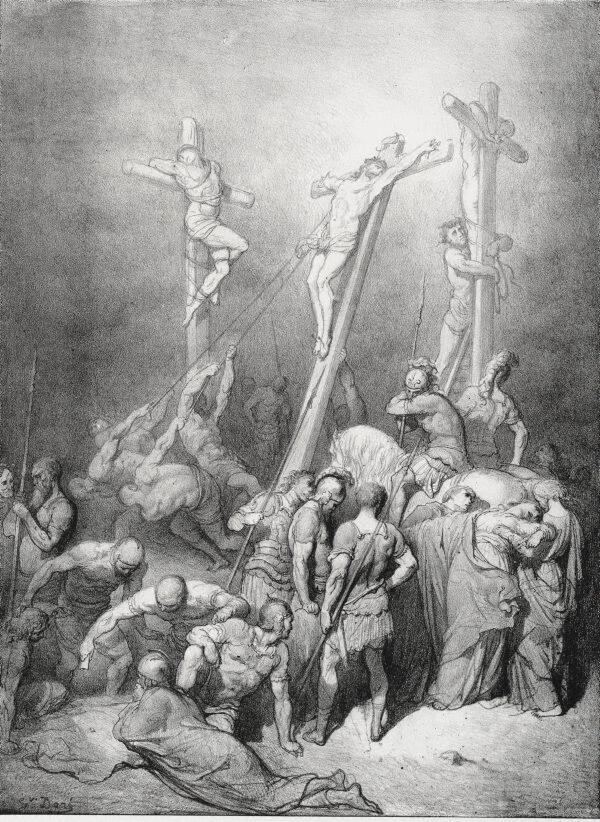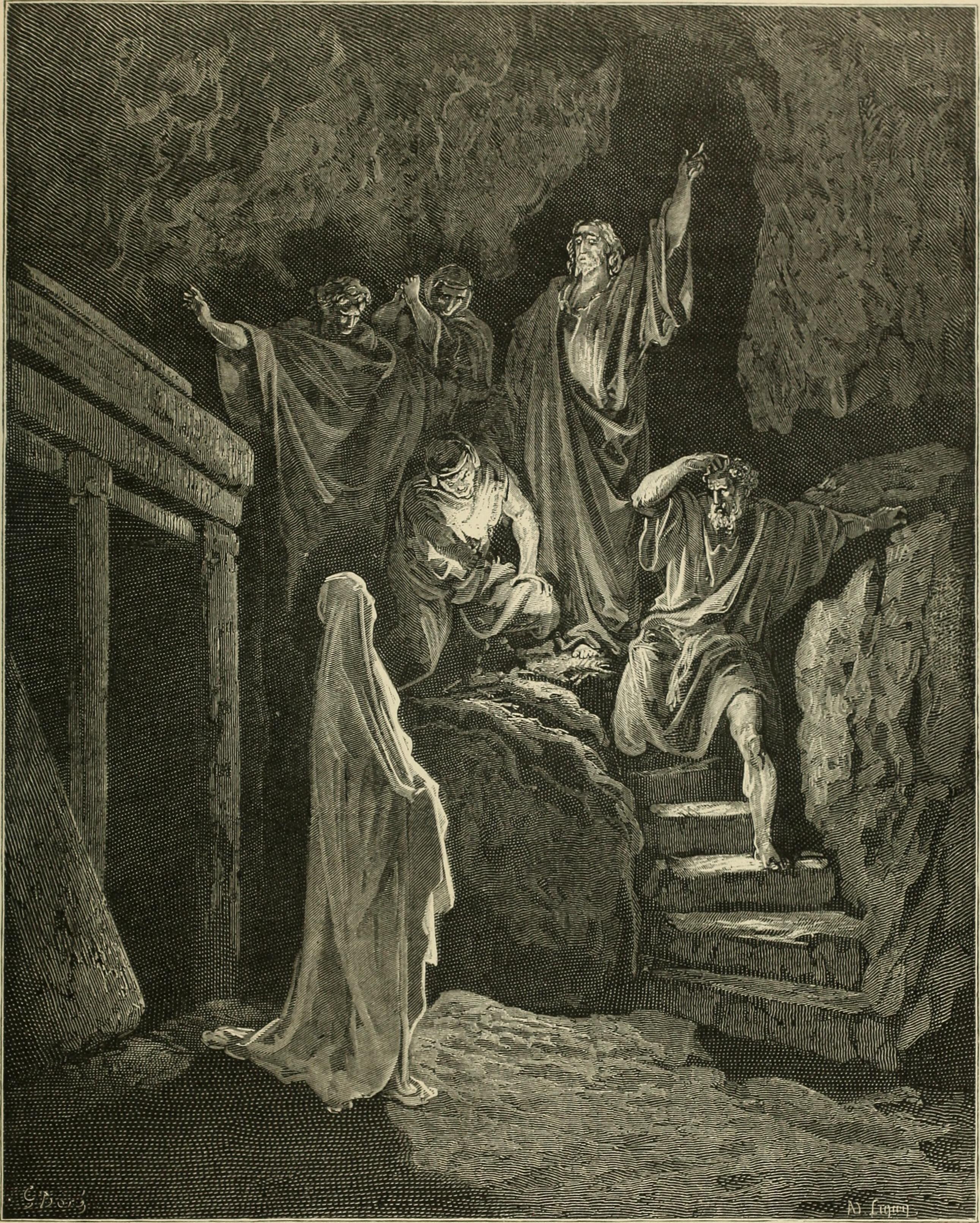MEDULLA S. THOMAE AQUITATIS PER OMNES ANNI LITURGICI DIES DISTRBUITA, SEU MEDITATIONES EX OPERIBUS S. THOMAE DEPROMPTAE
Compilation and organization by
FR. Z. MÉZARD O. P.
NOTE
All titles marked with an asterisk contain material that is no longer attributed to Saint Thomas Aquinas

31. Friday after the IV Sunday of Lent: The Most Precious Blood of Our Lord
Friday of the IV week of Lent
I. — By the blood of Christ, the New Testament was sealed. "This cup is the new testament in my blood" (1 Corinthians 11:25).
Testament is understood in two ways:
— The word "testament" is commonly used to mean some covenant. Thus, God made covenants with humanity twice. The first time, promising temporal goods and delivering us from temporal evils; and this covenant is called the Old Testament. The second time, promising spiritual goods and delivering us from contrary evils; and this covenant is called the New Testament. All this according to the Scriptures: "Behold, the days are coming, says the Lord, when I will make a new covenant with the house of Israel and the house of Judah, not like the covenant that I made with their fathers when I took them by the hand to bring them out of the land of Egypt (...) Behold, the covenant that I will make with the house of Israel after those days, says the Lord: I will put my law within them, and I will write it on their hearts; and I will be their God, and they shall be my people" (Jeremiah 31:33).
The ancients used to mix the blood of a victim to seal a covenant; Moses took blood and sprinkled it on the people, saying: This is the blood of the covenant that the Lord has made with you. Thus, therefore, the old testament or covenant was sealed in the blood of bulls; the New Testament or covenant, in the blood of Christ, shed in His Passion.
— The word "testament" is also used, in a stricter sense, to signify the disposition of an inheritance. Now, the testament, in this sense, is received only by death; for, as Saint Paul says: "For where a will is involved, the death of the one who made it must be established" (Hebrews 9:17). God had initially disposed for an eternal inheritance, but in the figure of temporal goods; which constitutes the Old Testament. But then, He made a New Testament, by which He expressly promised the eternal inheritance; and this Testament was sealed by the blood of the death of Christ. And that is why the Lord said: "This cup is the New Testament in my blood, which will be shed for you" (Luke 22:20); as if to say: through the contents of this cup, the New Testament is celebrated, confirmed by the blood of Christ.
In I Corinthians, XI
II. — There are other uses of the blood of Christ.
1. It purifies us from our sins and impurities: "He loved us and washed us from our sins in his blood" (Revelation 1:5).
2. It guarantees our redemption. "You ransomed us for God with your blood" (Revelation 5:9).
3. It makes peace for us with God and the angels. "And through him to reconcile to himself all things, whether on earth or in heaven, making peace by the blood of his cross" (Colossians 1:20).
4. It refreshes and intoxicates those who take it. "Drink from it, all of you" (Matthew 26:28). And, in another part, "He made him ride on the heights of the earth... and he drank the finest wine" (Deuteronomy 32:14).
5. It opened the gates of heaven. "Therefore, brothers, since we have confidence to enter the holy places by the blood of Jesus" (Hebrews 10:19), that is, the continuous prayer directed to God for our benefit; for the blood cries out for us each day, as Saint Paul says: "But you have come to Mount Zion and to the city of the living God... and to the sprinkled blood that speaks a better word than the blood of Abel" (Hebrews 12:24). The blood of Abel cried out for vengeance, the blood of Christ, for forgiveness.
6. It freed the saints from hell, according to what is written: "As for you also, because of the blood of your covenant, I will set your prisoners free from the waterless pit" (Zechariah 9:11).
Serm. in Dom. de Passione
(P. D. Mézard, O. P., Meditationes ex Operibus S. Thomae.)
#God #Deus #Isten #Gott #Jesus #Católico #Catholic #Katholik #katholisch #Katolikus #catholique #Faith #Fé #foi #信仰 #Latin #Latim #Gospel #Evangelho #Evangélium #évangile #Dieu #福音 #日本 #カトリック #Bible #Biblestr #Nostr #Grownostr
quoting
nevent1q…xjrh
Title of the work in Latin
MEDULLA S. THOMAE AQUITATIS PER OMNES ANNI LITURGICI DIES DISTRBUITA, SEU MEDITATIONES EX OPERIBUS S. THOMAE DEPROMPTAE
Compilation and organization by
FR. Z. MÉZARD O. P.
NOTE
All titles marked with an asterisk contain material that is no longer attributed to Saint Thomas Aquinas

30. Thursday after the IV Sunday of Lent:
The Death of Lazarus
Thursday of the IV week of Lent
“Our friend Lazarus sleeps” (John 11:11)
I. We call someone “Our friend” because of the numerous benefits and services they have rendered to us; therefore, we should not neglect them in their time of need.
“…Lazarus sleeps”: this is the reason we need to assist him. “A friend… becomes a brother in the time of misfortune” (Proverbs 17:17). In the words of Saint Augustine, he sleeps for the Lord; for men, who cannot raise him, he is dead.
The word sleep can be used to signify many things: natural sleep itself, negligence, the sleep of guilt, the rest of contemplation or future glory, and sometimes death, as Saint Paul says, “But we do not want you to be uninformed, brothers, about those who are asleep, that you may not grieve as others do who have no hope” (1 Thessalonians 4:13).
Death is called sleep because of the hope of resurrection. For this reason, it is often referred to as “rest” since the time when Our Lord died and rose again: “I lay down and slept” (Psalm 3:6).
II. “but I will awaken him.” With this, Jesus implies that it is as easy for Him to raise Lazarus from the tomb as it is to wake someone from sleep. There is nothing surprising in this, for it is He who raises the dead and gives them life. That is why He said: “Do not marvel at this, for the hour is coming when all who are in the tombs will hear the voice of the Son of God” (John 5:28).
III. “let us go to him.” The mercy of God shines here; while men, in a state of sin and as the dead, cannot go to Him on their own, it is He who draws them, mercifully preceding them, as stated in the Scriptures: “I have loved you with an everlasting love; therefore, I have continued my faithfulness to you” (Jeremiah 31:3).
IV. “And when Jesus arrived, he found that he had already been in the tomb four days.” According to Saint Augustine, Lazarus, dead for four days, signifies the sinner held by the death of a quadruple sin: original sin, sin against natural law, actual sin against positive law, and actual sin against Gospel law and grace.
Alternatively, it can be said that the first day represents the sin of the heart, cf. “Cease to do evil; remove the evil of your deeds from before My eyes” (Isaiah 1:16); the second, the sin of the tongue, “Let no corrupt word proceed out of your mouth” (Ephesians 4:29); the third, the sin of deeds, about which Isaiah says, “Cease to do evil” (Isaiah 1:16); the fourth day represents the sin of bad habits.
In any way the text is presented, the Lord sometimes heals those who have been dead for four days, that is, those who transgress the law of the Gospel and are trapped in the habit of sin.
In John, XI
(P. D. Mézard, O. P., Meditationes ex Operibus S. Thomae.)
#God #Deus #Isten #Gott #Jesus #Católico #Catholic #Katholik #katholisch #Katolikus #catholique #Faith #Fé #foi #信仰 #Latin #Latim #Gospel #Evangelho #Evangélium #évangile #Dieu #福音 #日本 #カトリック #Bible #Biblestr #Nostr #Grownostr
nevent1q…mas2
